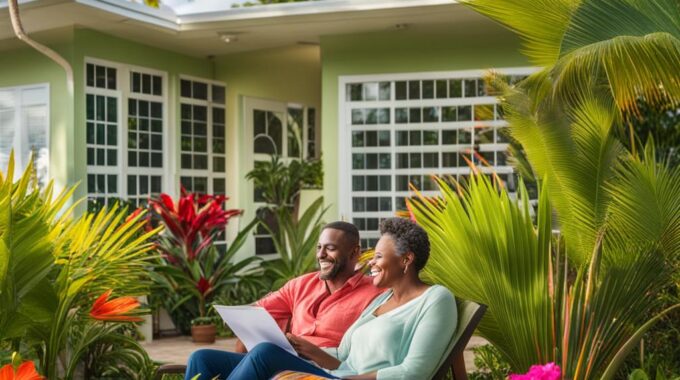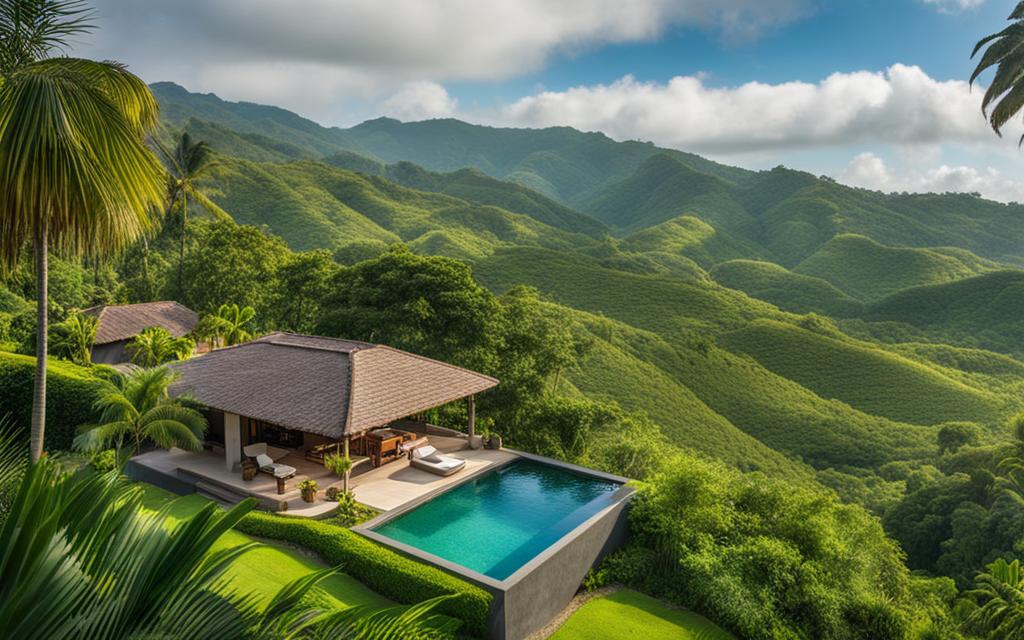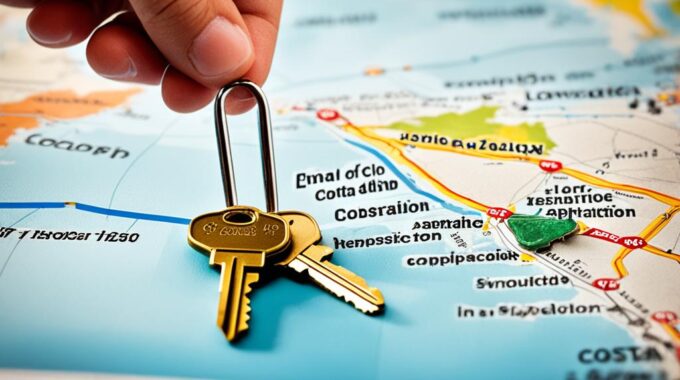Explore tailored Bridge Loans for Real Estate Investors in Costa Rica with quick funding and flexible terms to propel your property investments.

Buying a Home in Costa Rica with Private Lender
Getting a home in Costa Rica is a dream for many. However, traditional financing methods can be complex and hard to get through. For those still eager after learning the challenges with Costa Rican banks since 2003, turning to a private lender is a smart move. Exploring the option of private financing for Costa Rica real estate is becoming more popular. It’s crucial to understand how to secure a private mortgage for buying a home here.
The idea of purchasing property in Costa Rica through private loans is attractive. About 20% of transactions use short-term seller financing. As experts, we stress the importance of considering private loans. Especially in a market where closing costs are notably higher than in North America, by 3 to 5%.
Key Takeaways
- Private lenders offer an easier, faster way to buy homes in Costa Rica than traditional banks.
- Knowing about local mortgage laws and registration fees is key for a successful property buy.
- Think about seller financing and other alternatives like equity lines of credit and self-directed IRAs for funding.
- The real estate market in Costa Rica suits many buyer types, including those buying lots for future development.
- Consider the quick and custom terms when working with private mortgage lenders like Fast Costa Rica Finance for your purchase.
- Always have a legal expert check all documents to ensure a clear financing process in Costa Rica’s real estate scene.
Understanding Private Lending in Costa Rica
In financing options for Costa Rica real estate, lots of homebuyers think about cost-effective home buying in Costa Rica. The main charm of private lending solutions for Costa Rica property acquisition is their offer of specialized financing. This is outside the normal bank rules.

Private lending marks a big change for those who can’t get bank loans. This is because of strict rules or unusual income. Trusted equity loan lenders know borrowers have different needs. So, they offer various loan options. These can be for home fixes or investment chances.
Why Choose a Private Lender Over Traditional Banking?
Going with a private lender in Costa Rica means better competitive equity loan rates. Plus, the approval process is faster and less of a hassle. Home equity loans from these lenders have many uses. They can help pay for college, cover medical costs, or buy a second house. The ease and made-to-fit help of private lenders appeal to those wanting private gap equity loans in Costa Rica.
The Role of Loan-to-Value in Private Lending
The Loan-to-Value (LTV) ratio is key in private lending. It often sets the terms and interest rates. A good LTV shows strong collateral, making the borrower seem more trustworthy. Private lenders might loan up to 50% of a property’s market value. When the LTV is seen as low-risk, borrowers might get lower interest rates.
Reasons for High Selectivity in Lending Decisions
Private lending’s personal touch means lenders pick who they lend to carefully. This ensures their investments are safe. For instance, lenders for retirees provide quick equity loan approval. But, they only do this for safe, well-checked opportunities. This avoids the risks of non-payment and financial trouble.
Advantages of Quick Private Lending Approval
The main plus of using private lending is fast approval. Banks might take months to approve a loan. But, private lenders can do it way faster. Some even in a few weeks. This speed is key for buyers who want to close deals fast. They want to start seeing returns on their investments.
To wrap up, private lending in Costa Rica has lots of benefits for modern homebuyers. With better rates and faster procedure times, it’s a good path for those seeking an easier way to own property. It’s especially appealing in this beautiful country.
The Home Buying Process with Private Financing
Starting your home buying journey in Costa Rica is exciting. You can explore flexible equity loan options Costa Rica has. It’s more than finding a great home. You need a solid financial plan, knowledge of interest rates, and understanding of loan terms. It’s also important to know about insurance needs. Real estate investments keep changing. Stay informed about the unique benefits Costa Rica mortgage lenders offer.
Evaluating Your Real Estate Investment
Looking into home ownership? Assessing your investment’s value and potential is key. We focus on location, market trends, and growth possibilities. We’ll show you what could influence your investment’s success. This helps you make a smart choice.
Documents and Requirements for Private Lenders
Private equity loans in Costa Rica need less paperwork, but you must provide certain documents. Show proof of reliable income and where your funds come from. Make sure you meet the lender’s financial criteria. This makes getting an affordable home equity loan easier.
Navigating Interest Rates, Fees, and Loan Terms
Looking into loan terms is vital because they can be very different. We offer terms from 6 months to 3 years. Our loans have loan-to-value ratios up to 50%. If you seek lower LTV rates, like 10%, you’ll find even better interest rates. This makes getting good real estate loans possible.
Understanding Property and Life Insurance Prerequisites
Insurance is crucial for protecting your investment. It covers both the lender and the borrower against unexpected events. The requirements vary by provider. We’re here to help you understand them.

Choosing a financial partner with experience is priceless. Our team has vast local knowledge. Led by Glenn Tellier, we follow an 18-step loan process. This guarantees you get the reliability and security you need from Costa Rican real estate loans. With our competitive interest rates and closing costs, we stand out in private equity loans in Costa Rica.
| Loan Term | Interest Rate | LTV Ratio | Approval Time |
|---|---|---|---|
| 6 months – 3 years | 10% – More advantageous rates with lower LTV | Up to 50% | 5 – 10 business days |
Choosing the best Costa Rica real estate loans helps make moving into your dream home smooth. Whether it’s a quiet beach house or a home in the city, we guide you in private financing. Let us secure your investments in Costa Rica firmly and with confidence.
How to Buy a Home in Costa Rica with a Private Lender
Looking to buy property in Costa Rican property? Private lending is a quick way to get financing. Banks can take a long time, up to a year, to approve loans. But private loans in Costa Rica are faster, usually taking 7-10 days. This speed helps you grab your dream home without delays.

Buyers like the flexible payback options private lenders offer. Bridge loans help cover short-term financial needs during home buying. With a smooth loan approval process, you get terms that work for both you and the lender. This means you keep your financial freedom and the lender’s investment is safe.
Data shows why private lending is often a better choice than banks:
| Private Lending Attribute | Statistic |
|---|---|
| Loan Closing Timeframe | 7-10 business days |
| Loan Amount Range | $50,000 – $1,000,000+ based on equity |
| Max Loan-to-Value Ratio | Up to 50% |
| Interest Rates for Home Equity Loans | 12% – 16% |
| Loan Term Durations | 6 – 36 months |
| Homebuilding Loan Interest Rates | 12% – 16% |
In the busy world of Costa Rica real estate financing, private lenders offer easier options. They have lower rates and fewer closing costs than banks. With commercial loans, they also cater to various investors. Whether you want a big project or a small home, they can help.
Buying a home in Costa Rica with a private lender needs teamwork. We work with legal experts and financial pros to ensure everything goes smoothly. Owning a piece of paradise is possible with private lending. With the right team, your investment is in good hands.
Conclusion
Buying a home in Costa Rica using private lenders is a smart option for many. Private lenders make navigating real estate transactions easier. They help avoid common obstacles you’d face with banks. Luxe Investment Group and GAP Equity Loans make getting loans from private lenders smoother.
Private financing is attractive, especially to buyers from abroad. It speeds up loan approvals and offers customized loan terms. Prospective homeowners should research carefully. Find private money lenders that are trustworthy and offer clear financial support.
The financial scene in Costa Rica is complex but promising. It’s working on eco-friendly growth and dealing with government spending issues. The country is open to investments, ensuring checks and balances. Both locals and foreigners can find rewarding opportunities in Costa Rica’s welcoming real estate market.
FAQ
Why should I consider using a private lender for buying property in Costa Rica?
Using a private lender in Costa Rica can avoid many slow, official steps you’d face with banks. These lenders offer quicker approvals and might be easier to qualify with. This is great for those wanting to buy property there.
What is the significance of the Loan-to-Value ratio in private lending?
The Loan-to-Value (LTV) ratio is key as it measures loan risk. A good LTV shows strong collateral, making the loan secure. This factor is critical for getting your loan approved.
Why are private lenders selective in their lending decisions?
Private lenders pick who they lend to carefully to reduce risk. This strategy makes sure they fund safer, more trustworthy deals. It creates a safer lending environment for everyone involved.
What are the advantages of rapid private lending approvals?
Fast loan approvals mean borrowers get funds quicker. This helps greatly when you need to buy property fast. It’s ideal for urgent deals where regular loans are too slow.
How is real estate investment evaluated by private lenders in Costa Rica?
Private lenders look at a property’s value, location, condition, and how easy it is to sell. They check these factors thoroughly to decide if it’s good collateral.
What documents and requirements are essential for private lenders in Costa Rica?
You will need to show your income, bank statements, and where your funds come from. Lenders might also want a property appraisal and know your financial background. This helps ensure you can pay back the loan.
How do I navigate interest rates, fees, and loan terms with a private lender?
It’s vital to understand your loan’s terms, like interest rates and fees. Make sure you can handle the repayment terms. Always clarify all costs before agreeing.
Why are property and life insurance prerequisites for private lending in Costa Rica?
Property and life insurance safeguard the lender’s investment. If something bad happens, these insurances cover loan repayment and maintain the property’s value.
What are the steps to buying a home in Costa Rica with a private lender?
Start by evaluating the property and gathering your documents. Then, talk over the loan details, like interest and how long you have to pay it back. Don’t forget to include extra costs and insurance needs. Work with legal and financial experts to complete the sale.
Source Links
- https://www.tresamigos-cr.com/financing-property-costa-rica
- https://news.co.cr/how-to-finance-vacation-home-property-hard-money-loans-costa-rica/59762/
- https://www.costarican-american-connection.com/home-financing-costa-rica
- https://www.gapequityloans.com/en/equity-loans-faq/
- https://www.worldbank.org/en/country/costarica/overview
- https://www.angloinfo.com/how-to/costa-rica/housing/buying-property/financing-a-property
- https://www.investopedia.com/articles/personal-finance/050815/how-finance-foreign-real-estate.asp
- https://www.gapequityloans.com/en/about-us/
- https://www.remax-oceansurf-cr.com/financing-foreigners-costa-rica
- http://guidetocostaricarealestate.com/christopher-howards-guide-to-real-estate-in-costa-rica/christopher-howards-guide-to-real-estate-in-costa-rica/chapter-10-financing/getting-a-foreign-mortgage
- https://www.costaricadiscovered.com/real-estate-financing-costa-rica
- https://www.gapequityloans.com/en/costa-rica-home-equity-loans/
- https://www.gapequityloans.com/en/commercial-loans/
- https://www.gapequityloans.com/en/construction-loans/
- https://www.godutchrealty.blog/costa-rica-banking-and-mortgages/23-awesome-mortgage-tips-for-a-property-purchase-in-costa-rica/
- https://ticotimes.net/2015/10/20/25-mortgage-tips-costa-rican-home-buyers-must-be-aware-of
- https://ticotimes.net/2006/01/27/finnish-foreign-ministry-the-loan-wasn-t-ours
Article by Glenn Tellier (Founder of CRIE and Grupo Gap)



